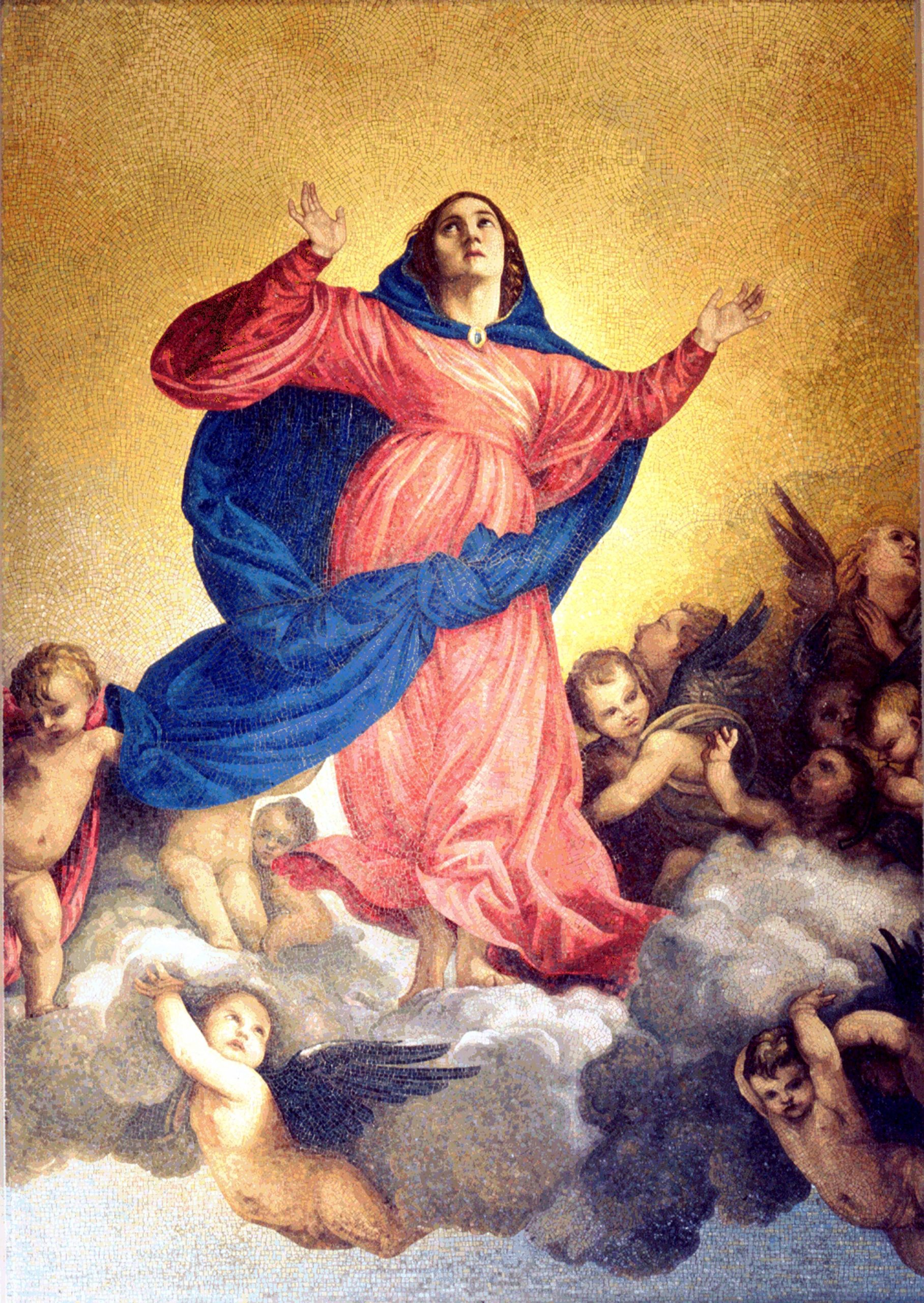By: Pope Pius XII
In their homilies and sermons on this feast the holy fathers and the great doctors spoke of the assumption of the Mother of God as something already familiar and accepted by the faithful. They gave it greater clarity in their preaching and used more profound arguments in setting out its nature and meaning. Above all, they brought out more clearly the fact that what is commemorated in this feast is not simply the total absence of corruption from the dead body of the Blessed Virgin Mary but also her triumph over death and her glorification in heaven, after the pattern set by her only Son, Jesus Christ.
Thus Saint John Damascene says: “It was necessary that she who preserved her virginity inviolate in childbirth should also have her body kept free from corruption after death. It was necessary that she who carried the Creator as a child on her breast should dwell in the tabernacles of God. It was necessary that the bride espoused by the Father should make her home in the bridal chambers of heaven. It was necessary that the Mother of God should share the possessions of her Son, and be venerated by every creature as the Mother and handmaid of God.”
All these reasonings and consideration of the holy Fathers rest on Scripture as their ultimate foundation. Scripture portrays the loving Mother of God, almost before our very eyes, as most intimately united with her divine Son and always sharing in his destiny.
Therefore just as the glorious resurrection of Christ was an essential part of this victory and its final trophy, so the struggle shared by the Blessed Virgin and her Son was to end in the glorification of her virginal body. As the same Apostle says: When this mortal body has clothed itself in immortality, then will be fulfilled the word of Scripture: Death is swallowed up in victory.
Hence, the august Mother of God, mysteriously united from all eternity with Jesus Christ in one and the same decree of predestination, immaculate in her conception, a virgin inviolate in her divine motherhood, the wholehearted companion of the divine Redeemer who won complete victory over sin and its consequences, gained, at last the supreme crown of her privileges—to be preserved immune from the corruption of the tomb, and, like her Son, when death had been conquered, to be carried up body and soul to the exalted glory of heaven, there to sit in splendor at the right hand of her Son, the immortal King of the ages.


